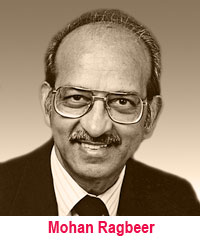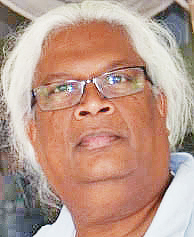Opinions
Trudeau’s gaffes

My disappointment with Trudeau deepens as he makes continual gaffes in policy and performance; I remain singularly unimpressed with Chrystia Freeland, his Foreign Minister and her slavishly pro-Trump behaviours: “We have many options for Venezuela, including a possible military option, if necessary.” This is unacceptable from an independent nation, especially when Trump is talking of quitting NATO, ordinarily desirable, as it is facilitates US foreign interventions. Her general stance for a diplomat is equally egregious: overtly anti-Russia, anti-China, Anti-Saudi Arabia and heaven
knows anti-who else, echoing US war-monger John Bolton and pigeon-holing Canada in a way unknown since colonial times. Freeland's recent endorsement as interim Venezuelan president, of an illegitimate and non-elected pretender, Juan Guaidó, a ward of US covert agencies, is ill-considered, sycophantic, and overlooks Maduro’s legality as president, however clumsily and negatively he might be managing it. Maduro was elected, and removal as advocated by US, Canada etc. is not constitutional, as she claimed (under Article 233). The United Nations recognises him and 50 UN-member countries have pledged support, while 65 have not, according to Al Jazeera. Canada needs to join hands with other impartial groups, not the discredited OAS, under its Secretary Luis Almagro, a Trump mouthpiece whose own state, Uruguay, will not back his re-election. The OAS has always been a US slave. Nor is the Lima group, which Freeland likes, unbiased; rather, something like the diplomacy-oriented Montevideo Mechanism of CARICOM and others—might help Venezuela out of the Maduro morass: “This Mechanism is our proposal to guarantee a peaceful and democratic solution that prevents an escalation of violence.” (https://today.caricom.org/2019/02/06/mechanism-of-montevideo/).
Freeland’s fulsome and aggressive stance, however, touts the US agenda, out of ignorance, I hope, of past history, as any fore-knowledge of US behaviour in Latin America would have identified the Venezuelan script as patently CIA, capped blatantly by the selection of pardoned Raegan-Contra criminal Elliot Abrams to “restore democracy and prosperity” in Venezuela!
Following previous interventions elsewhere, the US in 1954 removed popular Jacóbo Arbenz Guzman from the Presidency of Guatemala. The Cold War was solidly launched and the US labelled all reformers as Communists. Thus they initiated wars in Korea, Vietnam, Cuba, changed or manipulated regimes in Argentina, Brazil, Chile, Nicaragua, Panama, Honduras, Haiti, Dominican Republic, British Guiana (Guyana), Iran, Grenada, Yugoslavia, Somalia, USSR, Palestine, Cambodia, Pakistan; the foreign policies of weaker nations were corrupted by imperialist US diktats. What’s next; will Trump abandon NATO?
I had expected that Canada would act as honest broker in foreign affairs, free to comment on issues like the USA”s unilateral and ? illegal repeal of the multi-nation treaty with Iran, which the EU has just decided to maintain. Trump’s act has increased world tension; Canada under Pierre Trudeau or Jean Chrétien might have criticised it; though Mulroney or Harper would probably have said nothing. Now the US has cancelled its 30-year old Intermediate-range Nuclear Forces Treaty with Russia, forcing Russia to retaliate similarly, further increasing fears of Trump’s brinkmanship in US international relations. The least Canada should have done was a strong public criticism of the act and made diplomatic efforts to calm the world, a role it had tackled in the last half of the 20th century, earning the reputation as a nation of peace. Under this Prime Minister and Foreign Minister, Canada has joined the retinue of US toadies who approach Trump with extended tongues.
The resignation of Jody Wilson-Raybould, Minister of Veterans affairs, formerly the Justice Minister, has involved PM Trudeau in controversy. Late last year, it seems that she did not oppose her DPP’s decision to prosecute the Montreal giant, SNC Lavalin, for wrong-doing (including bribing in Gadhafi’s Libya), instead of offering the firm a deferred prosecution agreement by which a company can avoid prosecution by satisfying strict conditions, including fines, and so remain eligible to compete for government contracts. It is not clear whether the PM wished to settle out of court. However, she was demoted to Minister of Veterans Affairs, a shift that Trudeau said was due to Scott Brison’s resignation. Why would that affect the Justice Minister? She resigned a day after meeting with the PM, but wouldn’t say why, currently muzzled by client-solicitor privilege. Trudeau’s attempt to wriggle out of the resulting mess by assigning primary responsibility to Wilson-Raybould gets murkier with each telling of that news. Trudeau comes across as mean, attacking freely while his target is gagged. Something Trump might have done!
Adding to Trudeau’s worries is the sudden resignation of his adviser Gerald Butts.
(A correction; in last issue Kamaluddeen should be Shahabuddeen.)
Freeland’s fulsome and aggressive stance, however, touts the US agenda, out of ignorance, I hope, of past history, as any fore-knowledge of US behaviour in Latin America would have identified the Venezuelan script as patently CIA, capped blatantly by the selection of pardoned Raegan-Contra criminal Elliot Abrams to “restore democracy and prosperity” in Venezuela!
Following previous interventions elsewhere, the US in 1954 removed popular Jacóbo Arbenz Guzman from the Presidency of Guatemala. The Cold War was solidly launched and the US labelled all reformers as Communists. Thus they initiated wars in Korea, Vietnam, Cuba, changed or manipulated regimes in Argentina, Brazil, Chile, Nicaragua, Panama, Honduras, Haiti, Dominican Republic, British Guiana (Guyana), Iran, Grenada, Yugoslavia, Somalia, USSR, Palestine, Cambodia, Pakistan; the foreign policies of weaker nations were corrupted by imperialist US diktats. What’s next; will Trump abandon NATO?
I had expected that Canada would act as honest broker in foreign affairs, free to comment on issues like the USA”s unilateral and ? illegal repeal of the multi-nation treaty with Iran, which the EU has just decided to maintain. Trump’s act has increased world tension; Canada under Pierre Trudeau or Jean Chrétien might have criticised it; though Mulroney or Harper would probably have said nothing. Now the US has cancelled its 30-year old Intermediate-range Nuclear Forces Treaty with Russia, forcing Russia to retaliate similarly, further increasing fears of Trump’s brinkmanship in US international relations. The least Canada should have done was a strong public criticism of the act and made diplomatic efforts to calm the world, a role it had tackled in the last half of the 20th century, earning the reputation as a nation of peace. Under this Prime Minister and Foreign Minister, Canada has joined the retinue of US toadies who approach Trump with extended tongues.
The resignation of Jody Wilson-Raybould, Minister of Veterans affairs, formerly the Justice Minister, has involved PM Trudeau in controversy. Late last year, it seems that she did not oppose her DPP’s decision to prosecute the Montreal giant, SNC Lavalin, for wrong-doing (including bribing in Gadhafi’s Libya), instead of offering the firm a deferred prosecution agreement by which a company can avoid prosecution by satisfying strict conditions, including fines, and so remain eligible to compete for government contracts. It is not clear whether the PM wished to settle out of court. However, she was demoted to Minister of Veterans Affairs, a shift that Trudeau said was due to Scott Brison’s resignation. Why would that affect the Justice Minister? She resigned a day after meeting with the PM, but wouldn’t say why, currently muzzled by client-solicitor privilege. Trudeau’s attempt to wriggle out of the resulting mess by assigning primary responsibility to Wilson-Raybould gets murkier with each telling of that news. Trudeau comes across as mean, attacking freely while his target is gagged. Something Trump might have done!
Adding to Trudeau’s worries is the sudden resignation of his adviser Gerald Butts.
(A correction; in last issue Kamaluddeen should be Shahabuddeen.)
Pickling mangoes and other tearful joys
 Romeo Kaseram
Romeo Kaseram
Ma shed tears whenever she grew sad about the cruel ways of this world. When I was growing up in the homeland there were lots of bad things happening, enough to have Ma cry for weeks on end. However, while she cried out of sadness, there were also moments when she cried for joy; and there was a third occasion when she opened up the waterworks. But first, there was that lachrymal flow Ma had that was non-stop on some mornings, when she sat quietly swinging in the hammock in the gallery at the front. Then a hammock was an important and must-have item of furniture in any house. In our case, it swung in the open
front where the sun did not hit, so a soft, cool breeze could flow through, and was perfect for a nap during the blazing heat of the afternoon. It was attached by its rope at the equidistance of two corners from iron rings bolted onto the main posts holding up the roof. Its anchoring to these pillars of the house meant the hammock could support a growing exponential of weight, and it was not unusual for a crowd made up of my uncles and myself, in a moment of hilarity, to pile up together in affectionate attempt at squeezing Ma half-to-death, transforming her, as she complained, “Into a thin piece of dry-up roti!”
What is hardly thought about a hammock is how it lifts an occupant into a place of liminality – into the in-between, when the feet rise away from the pull of gravity as its swings in space. It was in this space where Ma would find sanctuary and rest, her tired feet raised, and her body floating above the ground, where on a pendulum swing, she became detached from the world even as she contemplated its cares and grievances.
And did she have a grievance! It was over a neighbour, and the treatment of the dogs kept for guard duty. Ma constantly railed at how the poor creatures were being mistreated – poorly fed on scraps, always thirsty with tongues hanging from mouths, the dogs nudging each fallen leaf from the nearby avocado tree with hopeful snouts seeking a serendipitous morsel. The dire condition of neglect, abandonment, and cruelty of this pack of dogs brought her to tears as she swung, back and forth, up and down, a forefinger constantly lifting up to brush away the pearls beading on her eyelashes.
Then there were those moments when Ma occupied an opposite pole of laughter, the time of mirth, particularly during gatherings when humorous anecdotes were recounted from generations past about erratic behaviour by family members. Her laughter always caused us alarm.
Ma’s laugh for joy was as pure as honey, and came from a similar source, gathered far and wide from the depths of distant flowers and distilled with intense labour with the frenzied buzz of a thousand wings. We would watch with caution and solicitude as her laughter energised, her eyes tightly-shut, and her face contorted, her body stiffening and growing rigid, the wings of the laugh beating with rapidity until it silently lifted up her entire body.
If laughter in its purest form were wings, then Ma would have flown. But for now, she swung in that space of liminality in her hammock, eyes closed with joy, the tears squeezing through and rolling down her face, her mouth open and silent even as her body convulsed and contorted.
Ma’s laughter always put us on the alert. We wondered with growing anxiety if she would return to this world when she was done; or whether she would cross the threshold, having been given a glimpse into a rapturous universe she had momentarily prised open with her mirth.
There was another moment when Ma cried – it was during mango season. I would accompany her on foraging runs, Ma knowing when the low-hanging, green mangoes were ready. I was growing into more than willing, agreeable company – already I had shot up like a young sugarcane ratoon, and could reach higher into the branches.
We gathered the mature, green mangoes, her vigil constant that its acidic sap not burn my face. Ma cut each mango into thin slices, which she spread on a cloth and put out into the sun. After days of dehydration, it was ready for pickling.
It meant another foraging run, this time in search of damp corners by tree stumps, and among thorny underbrush, for herbs and peppers. This was a journey for found seasoning – Ma’s familiarity with her world taking us to fields where patches of shrubs, known only to a surprised flock of blue jays, flourished with hundreds of red, ripened peppers.
Grinding the masala, herbs, and peppers on a curved, well-worn stone using a round river-rock in a bare hand, Ma cried non-stop as she made her mango pickle. I knew it was not just the intensity of the spices and peppers that brought tears to her eyes. This was a difficult life, one where happiness, sadness, and spices commingled to become a river of tears.
What is hardly thought about a hammock is how it lifts an occupant into a place of liminality – into the in-between, when the feet rise away from the pull of gravity as its swings in space. It was in this space where Ma would find sanctuary and rest, her tired feet raised, and her body floating above the ground, where on a pendulum swing, she became detached from the world even as she contemplated its cares and grievances.
And did she have a grievance! It was over a neighbour, and the treatment of the dogs kept for guard duty. Ma constantly railed at how the poor creatures were being mistreated – poorly fed on scraps, always thirsty with tongues hanging from mouths, the dogs nudging each fallen leaf from the nearby avocado tree with hopeful snouts seeking a serendipitous morsel. The dire condition of neglect, abandonment, and cruelty of this pack of dogs brought her to tears as she swung, back and forth, up and down, a forefinger constantly lifting up to brush away the pearls beading on her eyelashes.
Then there were those moments when Ma occupied an opposite pole of laughter, the time of mirth, particularly during gatherings when humorous anecdotes were recounted from generations past about erratic behaviour by family members. Her laughter always caused us alarm.
Ma’s laugh for joy was as pure as honey, and came from a similar source, gathered far and wide from the depths of distant flowers and distilled with intense labour with the frenzied buzz of a thousand wings. We would watch with caution and solicitude as her laughter energised, her eyes tightly-shut, and her face contorted, her body stiffening and growing rigid, the wings of the laugh beating with rapidity until it silently lifted up her entire body.
If laughter in its purest form were wings, then Ma would have flown. But for now, she swung in that space of liminality in her hammock, eyes closed with joy, the tears squeezing through and rolling down her face, her mouth open and silent even as her body convulsed and contorted.
Ma’s laughter always put us on the alert. We wondered with growing anxiety if she would return to this world when she was done; or whether she would cross the threshold, having been given a glimpse into a rapturous universe she had momentarily prised open with her mirth.
There was another moment when Ma cried – it was during mango season. I would accompany her on foraging runs, Ma knowing when the low-hanging, green mangoes were ready. I was growing into more than willing, agreeable company – already I had shot up like a young sugarcane ratoon, and could reach higher into the branches.
We gathered the mature, green mangoes, her vigil constant that its acidic sap not burn my face. Ma cut each mango into thin slices, which she spread on a cloth and put out into the sun. After days of dehydration, it was ready for pickling.
It meant another foraging run, this time in search of damp corners by tree stumps, and among thorny underbrush, for herbs and peppers. This was a journey for found seasoning – Ma’s familiarity with her world taking us to fields where patches of shrubs, known only to a surprised flock of blue jays, flourished with hundreds of red, ripened peppers.
Grinding the masala, herbs, and peppers on a curved, well-worn stone using a round river-rock in a bare hand, Ma cried non-stop as she made her mango pickle. I knew it was not just the intensity of the spices and peppers that brought tears to her eyes. This was a difficult life, one where happiness, sadness, and spices commingled to become a river of tears.
